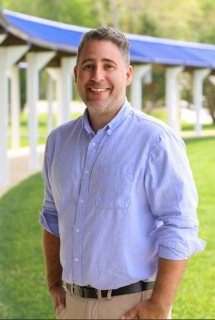Book review: ‘Questhouse’
Published 12:00 am Sunday, December 10, 2017

- Book review: 'Questhouse'
“Questhouse: A Gentle Spiritual Retreat for Recovery from Alcoholism” by Russell A. Hopper. Bowling Green: The Hope Group Inc., 2017. 336 pages, $29.
“ ‘Questhouse: A Gentle Spiritual Retreat for Recovery from Alcoholism’ is a powerful collection of tools for those struggling with alcoholism,” Joseph A. Califano Jr. notes in reference to the recent book from local author Russell A. Hopper. “The information, inspiration and spiritual advice woven through the pages of these pamphlets can help all of those affected by this disease – alcoholics, family members, treatment providers and counselors – in the step-by-step process of recovery.”
Califano knows what he is talking about. A former secretary of the U.S. Department of Health, Education and Welfare, he currently serves as chairman and president of the National Center on Addiction and Substance Abuse at Columbia University.
Full disclosure: I have known Hopper for several years and our paths have crossed professionally as well as personally on many occasions. I have made numerous referrals to his recovery center over the years primarily because I have seen the wonderful work he does in helping those struggling with addiction. As such, I was delighted to hear that he was publishing “Questhouse.” I am convinced a lot of people will benefit from the insights he has accrued during his long and distinguished career on the front lines.
As a book, “Questhouse” has a somewhat unusual format. The narrative is presented in 56 distinct pamphlets designed to comprehensively address virtually all aspects of the recovery process, beginning with “Sponsorship” and concluding with “Continuing Recovery.” The topics are designed to be an all-inclusive roadmap for those seeking to overcome addiction initially and then stay sober for the rest of their lives – one day at a time. It should also be noted that the text also serves as the basis for a 12-hour self-study course titled “The Clinician’s Recovery Tool Box,” which is available to helping professionals working in the alcohol treatment field.
One feature I found especially beneficial about “Questhouse” involves the way readers can approach the content from multiple perspectives. For instance, if you are interested in overcoming your addiction, you can systematically work your way through the pamphlets from beginning to end in a somewhat linear fashion. The sequence is designed to follow the traditional 12-step model that has been used effectively for generations as a vehicle for overcoming addiction’s grip. On the other hand, if you are interested in a particular issue related to addiction, you can go directly to the one that contains the information that interests you. Moreover, the book was written not only with addicts in mind, but also those who are affected by the erratic behavior that often characterizes these individuals.
For example, Pamphlet 41, “Family Rules and Roles,” describes what life is like living with an addict and answers many of the questions significant others tend to have about what they are experiencing on a daily basis and, more importantly, how they can best support the addict during the intervention and recovery process. Many of those in relationships with someone in the throes of addiction do not know how to interpret or manage the circumstances they invariably find themselves in, and as a result they often develop counterproductive (but entirely predictable) strategies that only serve to make the situation worse.
“If you grew up with one or more alcoholic parents or grandparents, or are in love with or married to an alcoholic, you have learned a set of non-productive compulsive behaviors while struggling to survive in a relationship that is experiencing great emotional pain and stress,” Hopper explains. “The outcome of long-term dysfunction (without recovery) is despair. Your life is marked by repeated crises: financial, work and social problems are routine. You eventually react to your pain and seriously look for ways to escape.”
I also found his depictions of the five “unhealthy survival roles” that often emerge in families that include someone with an addiction to be particularly poignant and relatable; i.e., the primary enabler, family hero, scapegoat, lost child and mascot.
Hopper is a Kentucky and internationally certified alcohol and drug counselor. He holds an experiential doctorate degree from the American College of Addiction Counseling and is a member of the Kentucky Association of Addiction Professionals and NAADAC, the Association for Addiction Professionals. In 2014, he received the Certified Alcohol and Drug Counselor of the Year Award from the Kentucky Board of Certification of Alcohol and Drug Counselors. His career has spanned 27 years as a therapist. His most noteworthy accomplishment has no doubt been the founding of Questhouse, a recovery retreat in Bowling Green that has provided services to more than 6,000 people suffering from addiction.
Hopper separates fact from fiction in an authoritative way that few authors currently writing on this subject seem capable of doing. His firsthand knowledge of the ins and outs of recovery is evident on each page. But it is the empathy he instinctively embeds within his artfully executed prose that really makes this resource stand out from its many peers.
“Perhaps you are an alcoholic who has received prior treatment for your alcoholism, but for some reason seem to be relapse prone,” Hopper writes in Pamphlet 4, “Why Is It So Hard to Stay Sober?” “Just as the relapse is a mystery to friends and others, it is just as big a mystery to you. This in itself is an issue with you because you think you should be able to handle things on your own and have it altogether. After all, you were taught by society that you can handle this on your own – all you have to do is use your willpower.”
If you are suffering with addiction, or if you know someone who is, you would find “Questhouse” to be an invaluable resource in the struggle to overcome the devastating effects of this malicious and indiscriminate disease. Hopper knows his subject matter intimately; he knows what works and what does not. And after reading and reflecting on this exquisite primer, I believe you will, too.
– Reviewed by Aaron W. Hughey, Department of Counseling and Student Affairs, Western Kentucky University.






